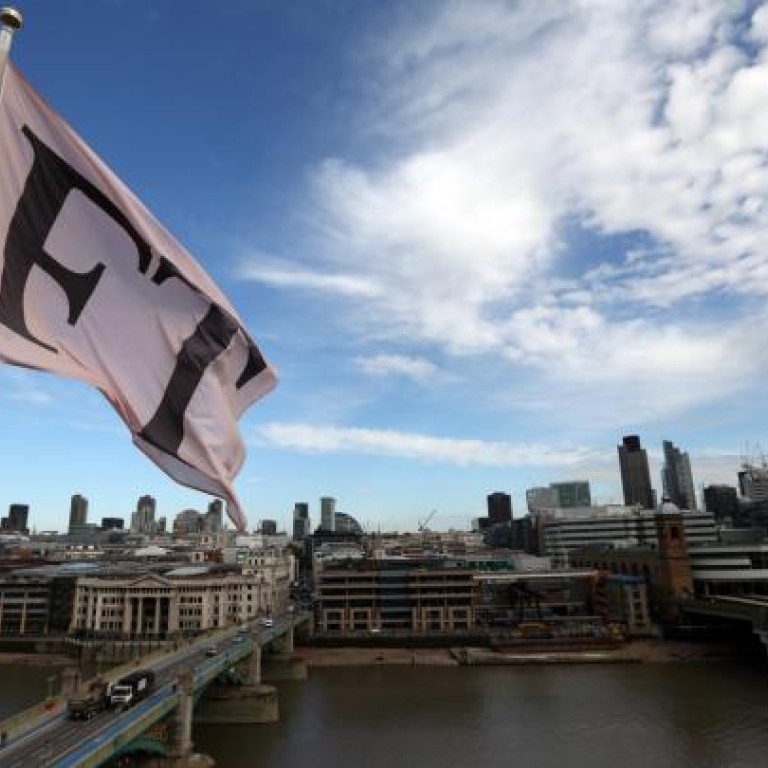
What price is the FT's independence?
Pearson's sale of the FT will be a sad day for quality journalism, but a victory for financiers who will get big bucks for engineering the deal
One of the remarks I cherish from my young career as a reporter came from a hard-bitten Fleet Street veteran on the eve of my departure from Britain's Daily Telegraph group to join the foreign desk of the . "This is your funeral as a journalist," he proclaimed. "The is not a newspaper; it is a trade magazine for the City."

Yet is the so good that tomorrow it could face its funeral as an independent newspaper? Financial circles of the City of London and Wall Street are asking: when and who will make a bid for the , and how much will they be prepared to pay?
It will be a sad day for the and for quality journalism if the paper is sold, a victory for the financiers who are quick to put a price on everything but who know the value of nothing.
That price will be high: most analysts start at US$1.2 billion. Jeffrey Goldfarb of Reuters Breakingviews calculates that on a similar basis to the parent companies of the and the - valued at 60 per cent of last year's sales - plus a 30 per cent takeover premium, the would be worth £350 million (HK$4.35 billion).
But he speculated that the paper would have "trophy value" similar to a successful sports club, like Manchester United, typically valued at four times its revenues. On that basis, the could be worth £1.7 billion.
Speculation about the 's sale also includes names of potential buyers. Thomson Reuters, whose history through Julius Reuter goes back to the days of the pigeon post, is cited in the same sentence as the brash newcomer Bloomberg as the leading candidates.
Both Bloomberg, with revenues of US$7.6 billion, and Reuters, with US$13.8 billion, could afford the - unless there was a crazy bidding war, in which case an entrepreneur with an outsized ego might fancy the .
Would Rupert Murdoch be tempted despite having been burned by paying over the odds for the ? Goldfarb throws the names of movie mogul David Geffen, Russian oligarch Alexander Lebedev, who already owns and the in Britain, and Mexican telecommunications billionaire Carlos Slim as interested in newspapers.
This newspaper reported that advisers for the 's parent went to China to look for a buyer. Could Beijing promise to maintain the 's independence? Would any journalist believe them?
The reason for the feverish speculation about the comes because Marjorie Scardino has just stepped down as chief executive of Pearson, which has owned the along with a 50 per cent stake in since 1957.
Scardino famously said Pearson would sell the "over my dead body". But her successor, John Fallon, rose to the top through the education side of the Pearson business and appears not to have the same affection for newspapers.
Fallon and Pearson will want to concentrate on the group's educational and publishing businesses, both of which are the biggest in the world, especially after the firm's merger of its Penguin books business with Random House. The now accounts for a mere 6 per cent of Pearson's operating profit, and everybody, except die-hard ink-stained journalists and entrepreneurs with egos, knows that newspapers are a dying business.
So surely now is the time to turn a distraction into a good profit by selling? The 's denials that any deal is on the table have merely added to the speculation of its imminence. They would deny it, wouldn't they?
Even though Pearson is a big multinational conglomerate, the flourished as a protected independent species latterly, thanks to Scardino.
The paper's emergence from City tipsheet to heavyweight international newspaper was because of the genius of Gordon Newton, editor from 1950 to 1972, ably assisted by his inspired choice of young graduate reporters from Oxford and Cambridge. Being enfolded into a big group would reduce the independence of any newspaper.
Selling the would be a victory for the financial engineers and merger and acquisition specialists who believe that big is beautiful - especially as in their fees - until a few years later they recommend unbundling conglomerates to realise the full value of the individual assets, as well as more fees for them.

